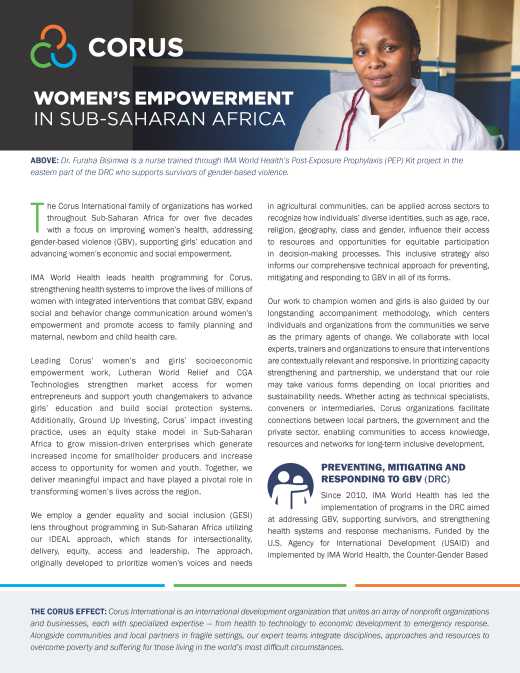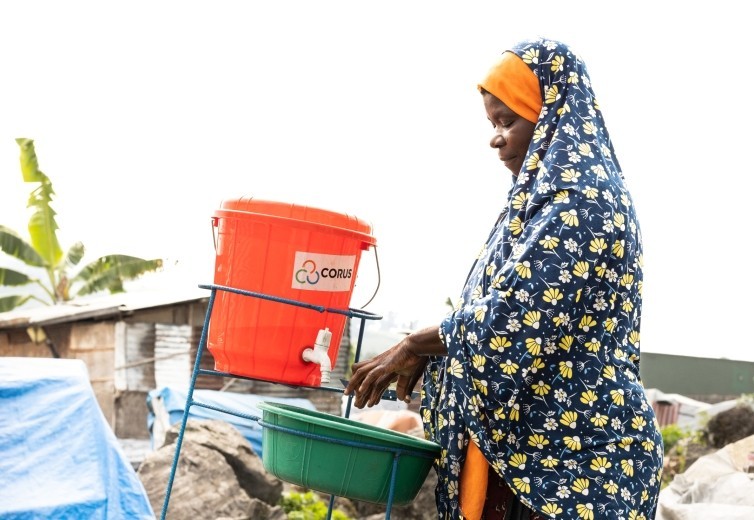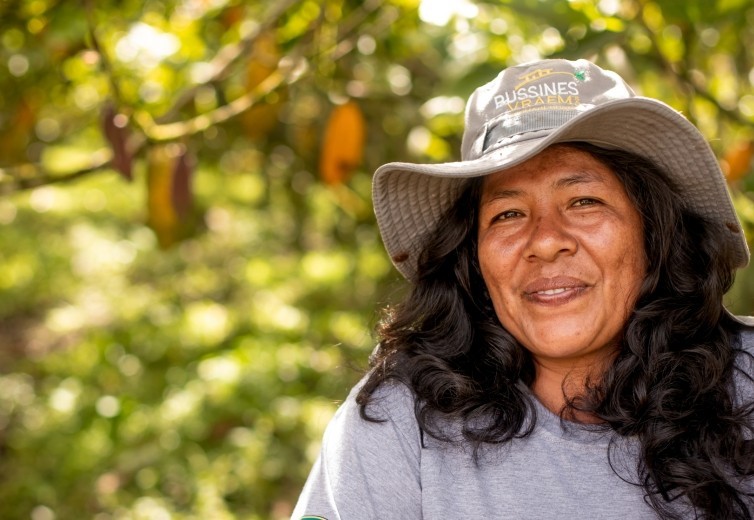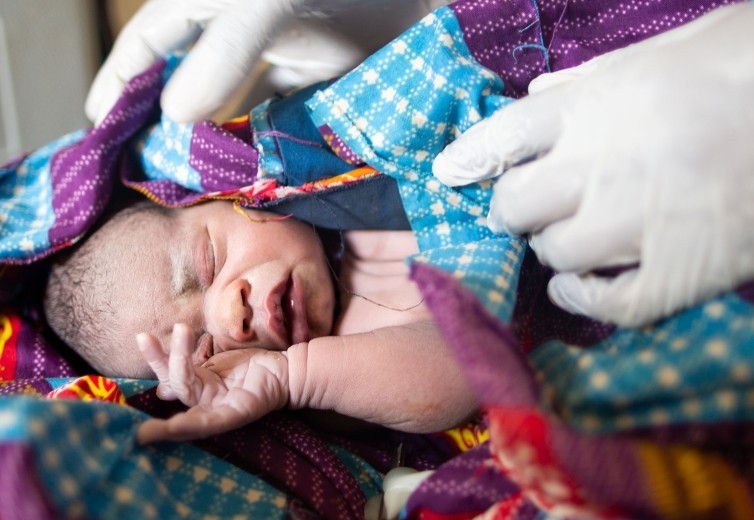The Democratic Republic of Congo (DRC) is a vast country of many resources yet has one of the highest rates of extreme poverty in the world where food insecurity and child malnutrition is severe. The country continues to face acute and complex humanitarian crises characterized by internal displacement and widespread insecurity, and its health system struggles to address the numerous public health crises in the country - from high children-under-five mortality rates to gender-based violence (GBV) to Ebola outbreaks.
Lutheran World Relief (LWR) has worked at the nexus of humanitarian assistance and rural economic development for over 70 years. In joining the Corus International family in 2020, we build on our fellow Corus organization IMA World Health's nearly 25 years of work in the DRC to integrate our agricultural livelihoods and market systems development expertise and resources with their extensive health and in-country expertise and networks to innovate more holistic solutions to support the Congolese government and our local partners in achieving transformational change in the DRC.
Agriculture
Lutheran World Relief works with smallholder farmers to increase their food security and their participation in and income from agriculture values chains. We train farmers in climate smart agricultural practices, post-harvest processing and storage as well as in improved animal husbandry. We strengthen the capacity of cooperatives and unions that serve these farmers, through trainings in governance and financial management, facilitating joint negotiation of credit and other services, and boosting collective marketing and sales.
Climate Resilience
Lutheran World Relief works with rural communities to adapt to and mitigate the effects of a changing climate on their agriculture-based livelihoods. We emphasize environmental rehabilitation through the implementation of soil and water conservation works and watershed management on community land, as well as tree seedling production for community-led reforestation.
Humanitarian Assistance
Lutheran World Relief meets the immediate needs of IDPs and households affected by drought and food crises through food, material resource and cash assistance while providing the support they need to start, diversify, and strengthen livelihoods.
Global Project Examples
The SESAME Project increased the quality and volume of sesame exports in the regions of Boucle du Mouhoun, Est, Cascade and Hauts Bassins in Burkina Faso. In collaboration with local partners Afrique Verte and Nitidae, LWR trained smallholder farmers in the best climate-smart practices in sesame production, post-harvest handling and storage.
Through the project, farmers also increased their business skills, access to financial services, particularly credit, and connection with buyers. Lutheran World Relief employed a Producer Enterprise Agent (PEA) model, in which PEAs provided production, post-harvest handling and processing training to cooperative and union members. Around 72,712 individuals now use new techniques and technologies on 180,668 hectares, resulting in increased sesame yields up to 350 kg/ha (from 235 kg/ha women; 241 kg/ha men) on average land sizes of 1.6 ha/person. Lutheran World Relief also hosted pre-marketing workshops, bringing together 77 sesame industry representatives to ensure the quality of sesame sold internationally. Through this arrangement, 54 pre-season contracts (total of 25,000 metric tons; valued at $25 million) were signed.
LWR leads cocoa programming for the U.S. Department of Agriculture’s Food for Progress MOCCA project, helping farmers sell more at better prices, improving farmer production and enhancing sector coordination to drive competitiveness and growth. Through MOCCA, LWR partners with the private sector across six countries in Latin America to not only invest in improving cocoa quality and yields, but also in the systems that make those improvements possible for the future, such as higher prices, good genetic material for planting, and more direct, feasible and profitable supply chains for smallholder farmers. Cocoa producers also utilize LWR’s Cacao Móvil (Mobile Cocoa), a smartphone application that provides farmers with access to a comprehensive guide to cocoa cultivation, covering subjects from planting and pruning, to grafting and treating plant diseases. LWR is developing a regional platform for knowledge transfer to strengthen the cocoa value chain while disseminating research across Latin America.
This project helped 14,548 farmers in Burkina Faso, Mali and Niger become more resilient to climate-related shocks through integrated approaches to improve agricultural and animal production, increase income generation and strengthen community-based organizations to deliver quality and trusted services to small-scale farmers. The project diversified, increased and protected household agricultural production, increased sales margins and incomes from agricultural surpluses, and enabled strong and accountable community-based organizations (CBOs) to provide agricultural advisory services and harness their social capital to support community resilience. CORE II ultimately benefited 147,306 people. Through the course of the project, 85.5% of targeted households had their livestock restocked, 91.5% had an increase in cowpea yields, 60.6% had an increase in sorghum yields, and 75.4% developed additional revenue streams. Additionally, 6,624 women organized in village savings groups. CBOs saw a 139% increase in operating capital, and 79.8% of their members had a good impression of CBO operations.
Funded by the U.S. Department of Agriculture’s Food for Progress Program, TRACE is a five-year project that improves Nigeria’s cocoa productivity through climate smart agriculture and expand its traceability for stronger marketability. In partnership with the federal and state governments of Nigeria, the International Institute of Tropical Agriculture (IITA), the Cocoa Research Institute of Nigeria (CRIN), Ecometrica, and C-Lever.org. Lutheran World Relief implements TRACE in Nigeria's cocoa-producing states of Abia, Ikwa Ibom, Cross River, Ekiti, Ondo, and Osun States. By the end of the project, over 51,000 smallholder farmers will be trained, resulting in a doubling of cocoa productivity and establishing a comprehensive (farm to export) traceability system that meets global standards. More than 68,400 farmers will gain access to markets, and over 366,000 hectares of farmland will be under improved climate risk reduction and/or natural resource management practices.
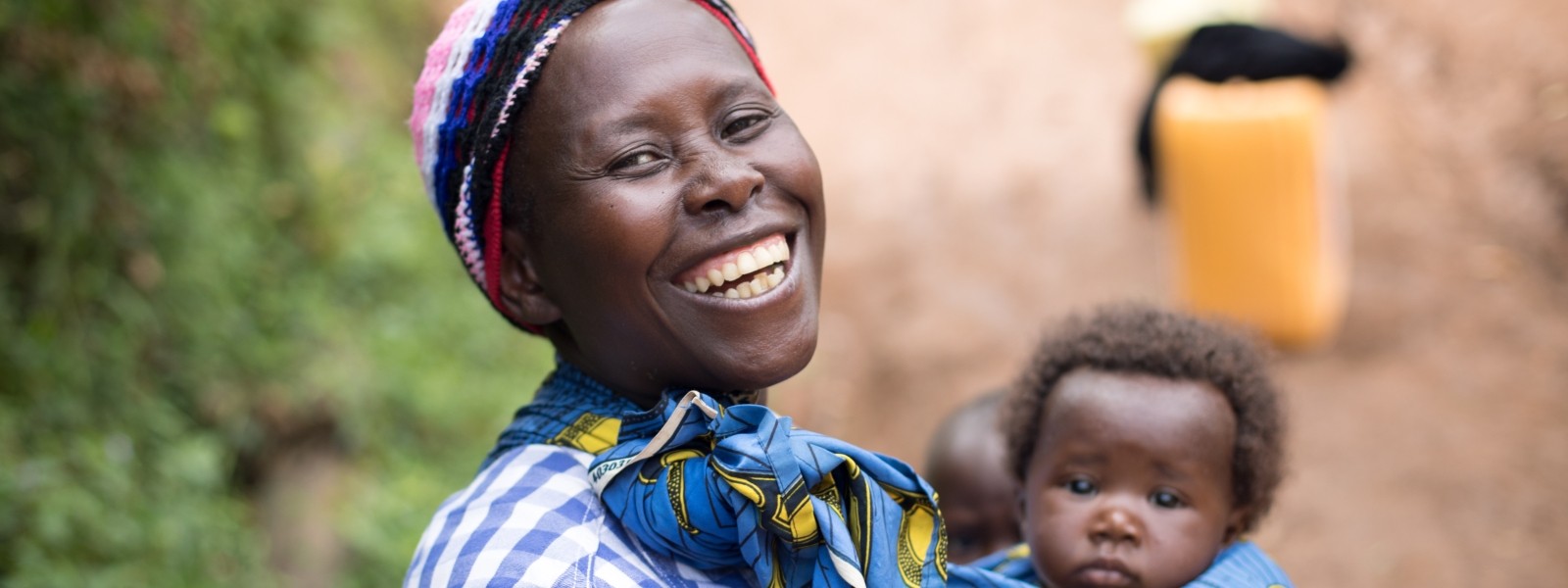
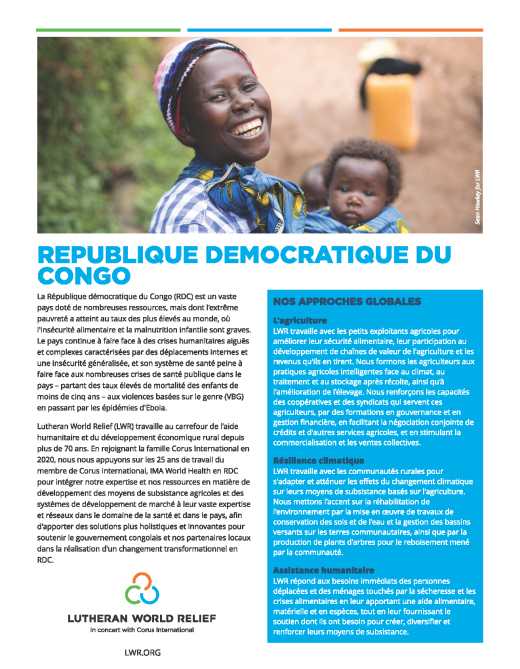
_page_1.pnga0c2.jpg)
